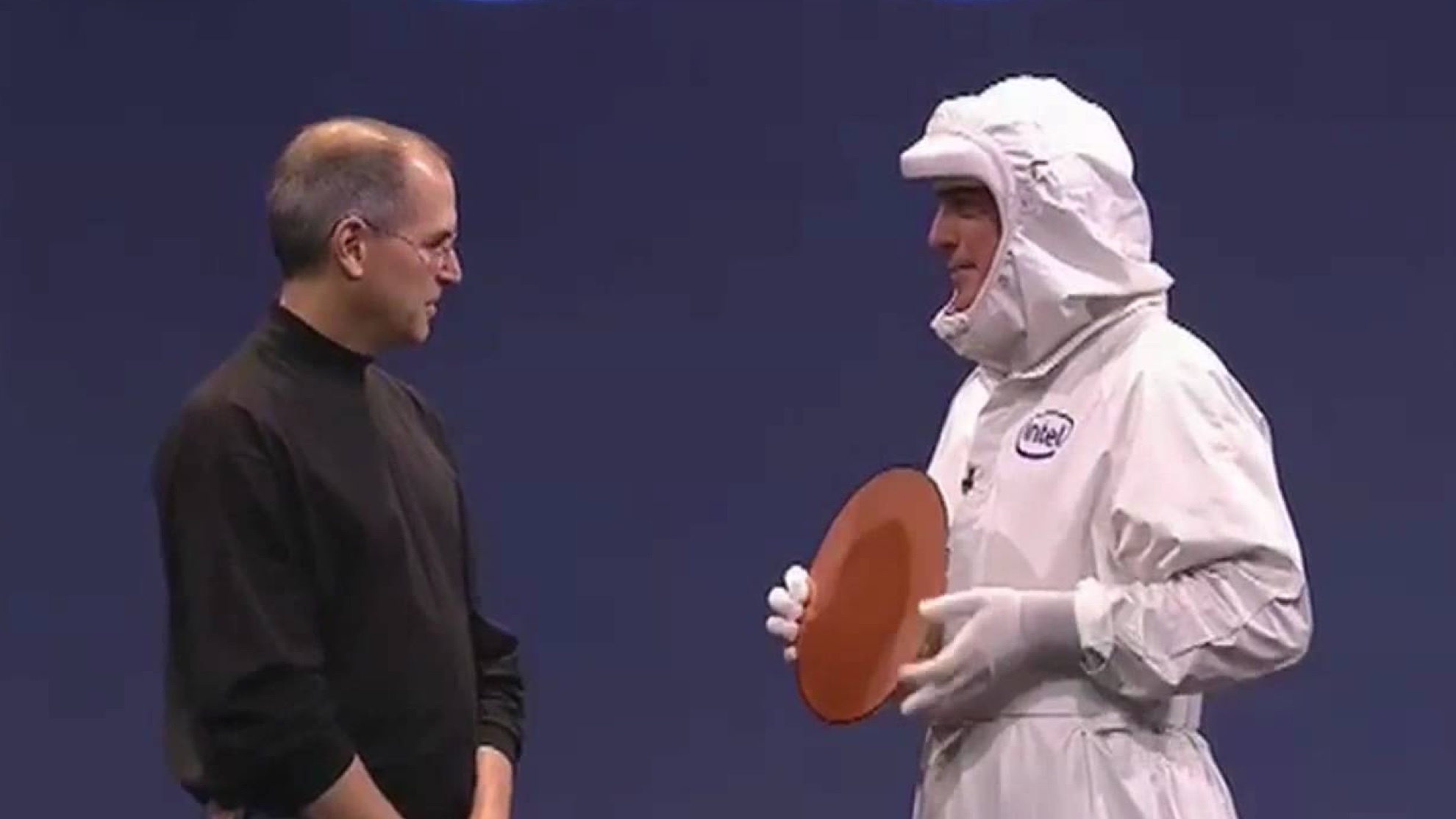No more Intel inside: Apple stops selling Intel-powered Macs
Apple will support some Intel Macs for a little longer, but the Intel-Apple era is officially over


In 2005, Steve Jobs made the entire WWDC audience gasp. "It's true," the screen behind him said. "Yes, it's true," Jobs echoed. "We are transitioning from PowerPC to Intel processors".
And yesterday, 18 years later, Tim Cook closed the door on that era. The new Mac Pro replaces the last of the Intel-powered Macs, so the entire Apple range now runs on Apple silicon.
The reasons for the move are similar, but not identical, to the reason Apple moved to Intel in the first place. The PowerPC chips Apple was using back then were not improving fast enough to deliver the kind of performance Apple wanted, or that its customers demanded. And today there's another key factor: Apple wants to own the key technologies on which its products depend.
The end of the Intel-Apple era goes back longer than you might think. The M1 processor in the M1 MacBook Pro may have been the first Apple Silicon in a Mac, but Apple signalled the move much earlier with the original iPad way back in 2010. Its A4 chip was the first Apple system-on-a-chip designed entirely in-house by Apple.
Is Apple making Intel Macs obsolete?
Yes, but you don't necessarily need to worry just yet. The next version of macOS, macOS Sonoma, will still support a few Intel Macs. However, older ones have been dropping off the supported systems list for a while, and more are going with this year's macOS: it's dropping support for the 2017 MacBooks and iMacs, which have Intel inside.
macOS Sonoma will support the following Mac models:
- iMac from 2019 and later
- Mac Pro from 2019 and later
- iMac Pro from 2017
- Mac Studio from 2022 and later
- MacBook Air from 2018 and later
- Mac mini from 2018 and later
- MacBook Pro from 2018 and later
This doesn't mean you should rush out and buy an M-series Mac if you don't need or want one. I've got an Intel MacBook Pro doing great work in my other job, music, and while it can't run the very latest macOS I don't need it to. But if you're looking at buying a second-hand Mac the end of Intel support is something you should take into consideration when you're looking, and when you decide how much you're willing to pay.
Get all the latest news, reviews, deals and buying guides on gorgeous tech, home and active products from the T3 experts
Writer, musician and broadcaster Carrie Marshall has been covering technology since 1998 and is particularly interested in how tech can help us live our best lives. Her CV is a who’s who of magazines, newspapers, websites and radio programmes ranging from T3, Techradar and MacFormat to the BBC, Sunday Post and People’s Friend. Carrie has written more than a dozen books, ghost-wrote two more and co-wrote seven more books and a Radio 2 documentary series; her memoir, Carrie Kills A Man, was shortlisted for the British Book Awards. When she’s not scribbling, Carrie is the singer in Glaswegian rock band Unquiet Mind (unquietmindmusic).
